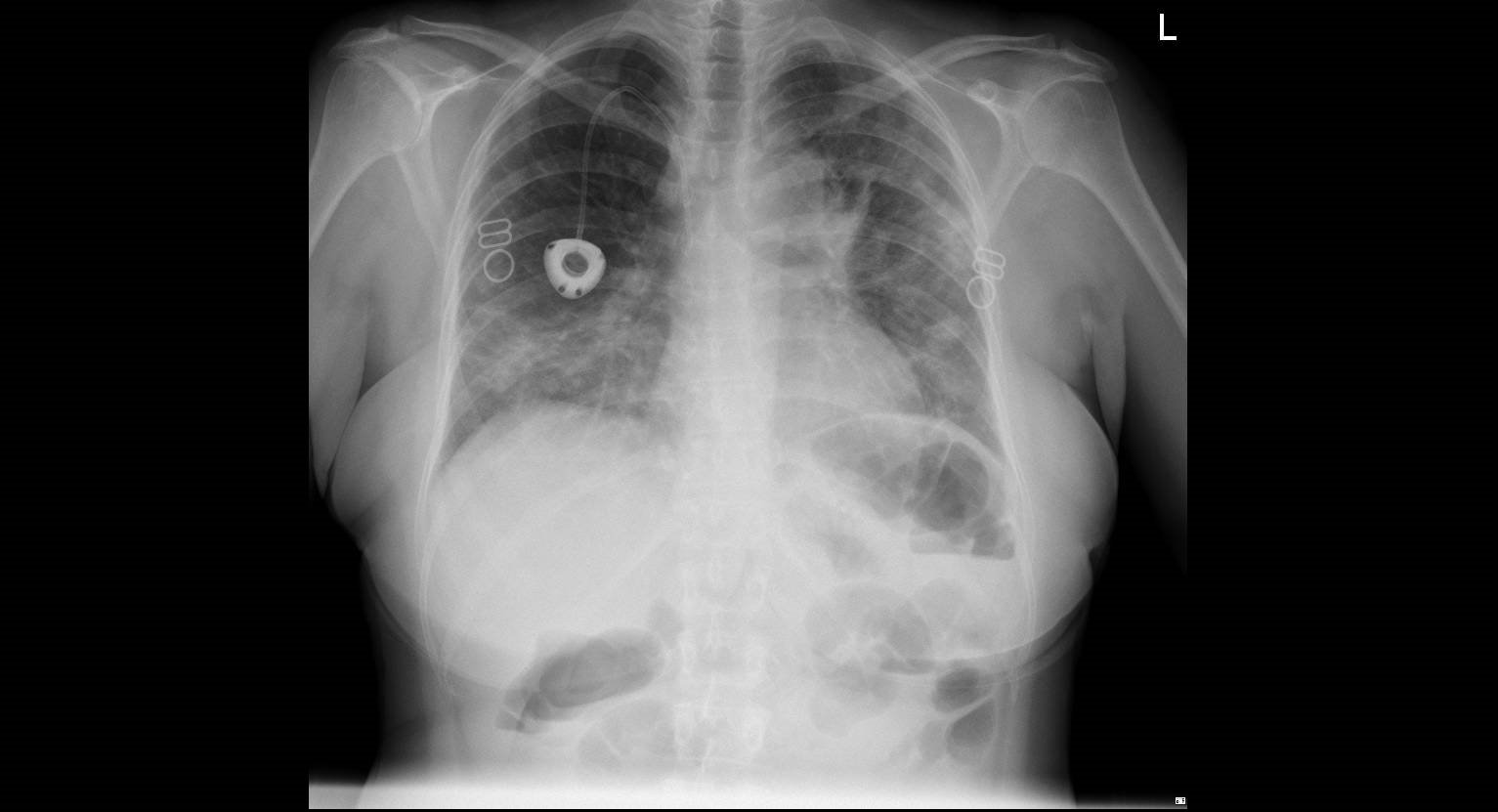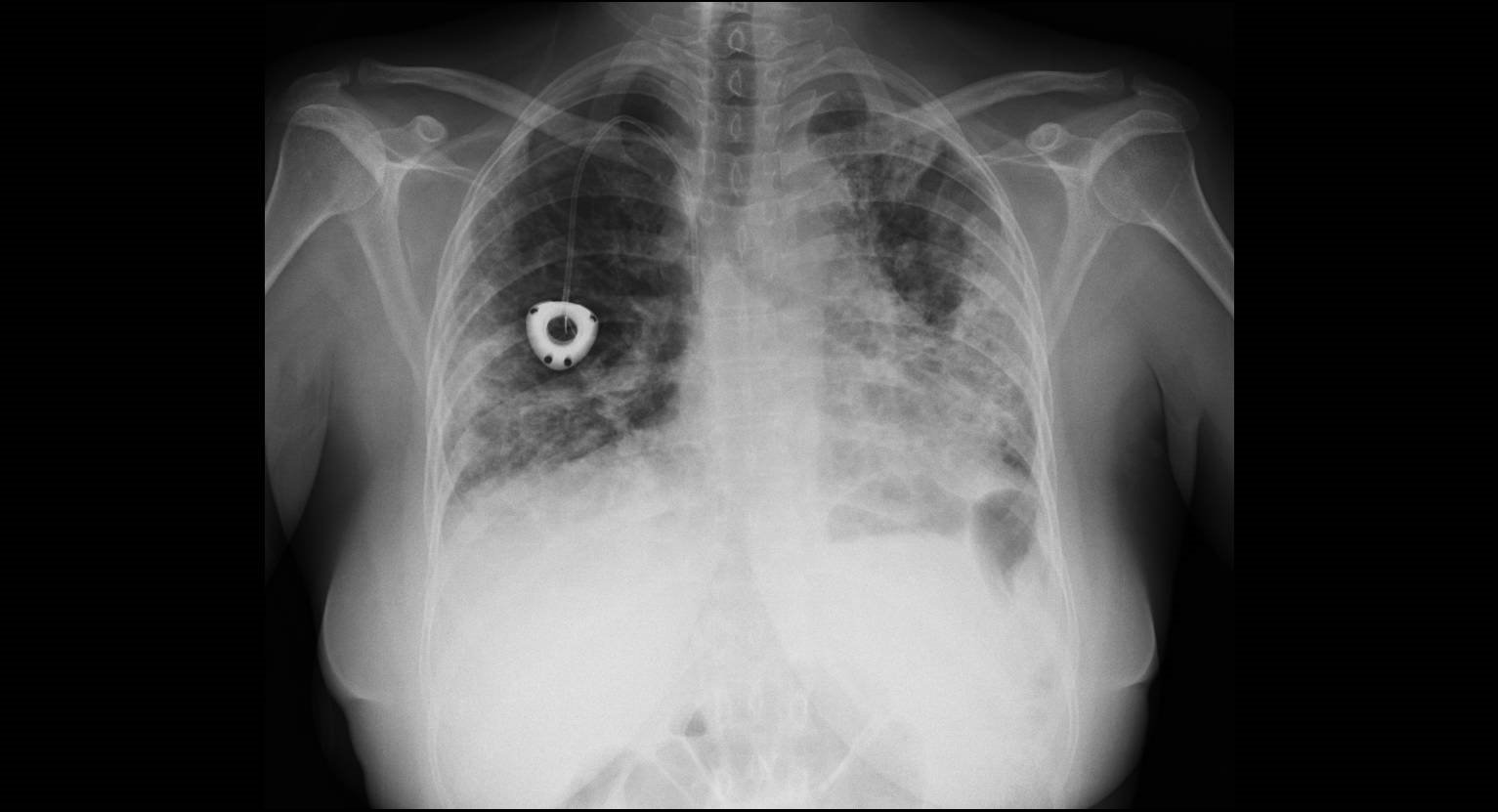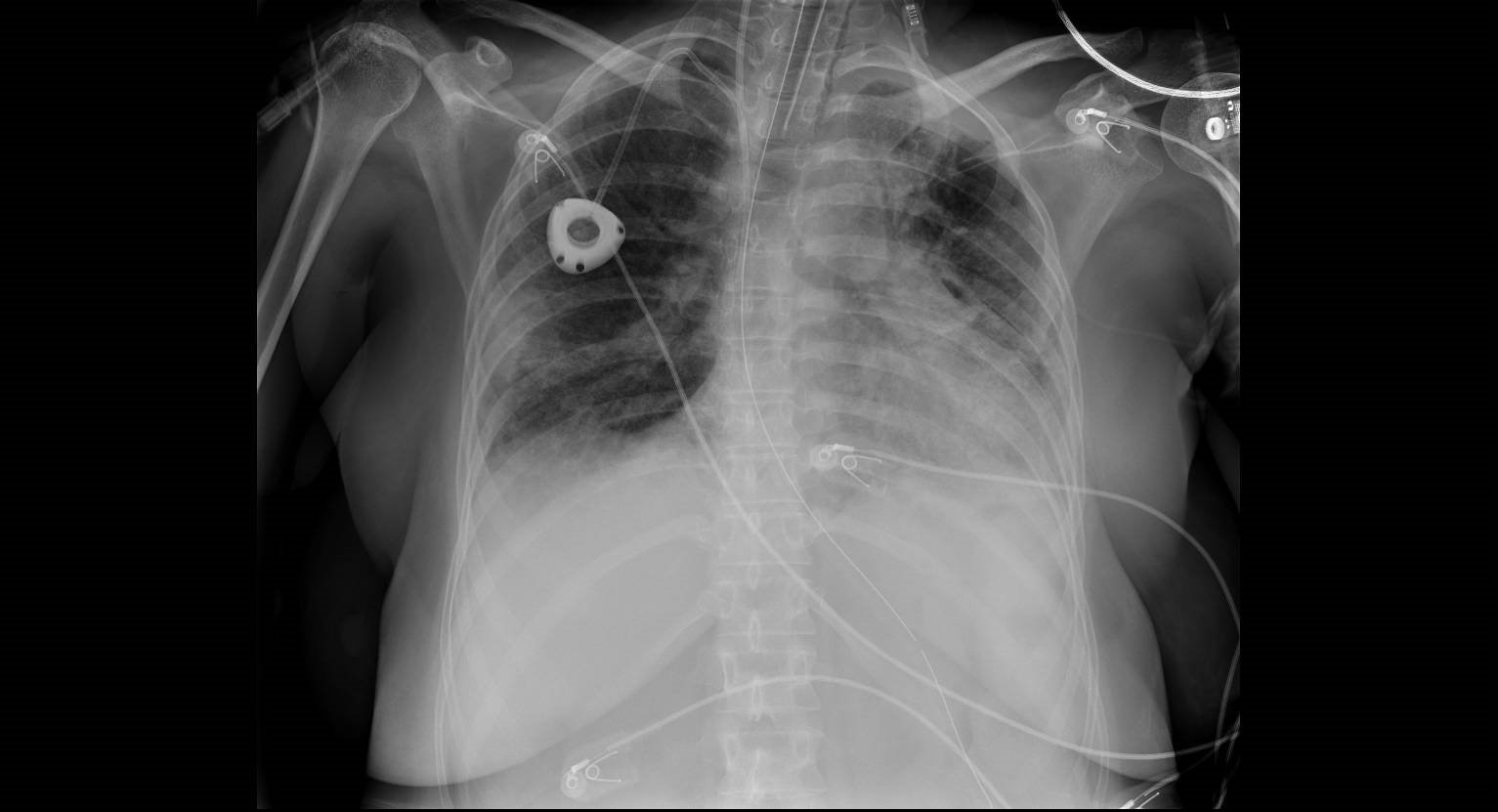Final Diagnosis: specialization helps sometimes

Because of the COVID-19 pandemic, we observe now even the small details of a thoracic x-ray. We try to detect important signs that could be associated with the coronavirus infection. Although the respiratory insufficiency is common to different pulmonary diseases, the context can help to select a particular disease.
We will show in the next clinical case the influence on the diagnosis of a subsequent information
Clinical case
A 40-year-old woman was diagnosed with a lymphoproliferative disease and she was treated with chemotherapy . After she received her fourth cycle she started with shortness of breath without fever and with no thoracic pain. The patient herself established a relationship between the time of the chemotherapy and the symptoms.
Clinical evolution
During the period of a week she was getting worse with a very low oxygen saturation (80% without oxygen going up by 96% with a high concentration), and she was unable to reach to the bathroom.
The blood cultures, Legionella urinary antigen and galactomanam antigen, were negative. No sputum culture or bronchoscopy was possible to obtain initially.
The patient was treated with broad spectrum antibiotics, voriconazole, trimethoprim sulfamethoxazole and steroids. Her pulmonary function was deteriorating day by day and she was transferred to the Intensive Care Unit, but unfortunately she died there two weeks later. The culture of the material obtained through intubation was negative for bacteria, fungus or tumor.
We will show here the radiographic evolution:



#1 QUESTION
Can you suggest a diagnosis with this information?
Do you need any other information about the clinical situation? Then click here
After the new information, can you suggest the final diagnosis?
Final Diagnosis. Click here
Final Comment
Following the new concepts about what it is known like “situated cognition theory” ( 1 ), the contribution of the patient information, the specialization of the physician , and the context of chemotherapy, together are key data to reach a correct diagnosis.
Bibliography
Clinical reasoning performance assessment: using situated cognition theory as a conceptual framework


